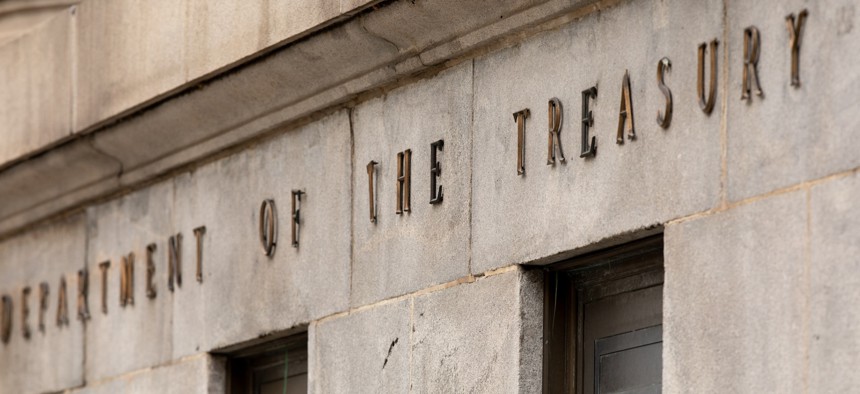US sanctions Kremlin-backed firms for operating network of fake news sites

JTSorrell/Getty Images
The disinformation campaign was deployed in Fall 2022, and shows how Russia’s private sector easily works with the government on disinformation operations.
The Treasury Department sanctioned a pair of Russia-based companies and their leaders Wednesday for deploying a network of over 60 fake news websites that impersonated legitimate European news outlets, marking a renewed U.S. push against Kremlin-backed information operations that intelligence officials have persistently warned of as elections take place around the world.
The sites were generated by Social Design Agency and Company Group Structura, featuring misleading news content that was involved in a “persistent foreign malign influence campaign at the direction of the Russian Presidential Administration,” Treasury said in a news release.
Ilya Andreevich Gambashidze and Nikolai Aleksandrovich Tupikin ran SDA and Structura, respectively, and used fake social media accounts to amplify the synthetic news content, the department added.
The campaign was deployed ahead of fall elections in Europe. The fake sites were built to mimic the appearance of real news organizations and also impersonated cookie acceptance pages and included images and working links to legitimate webpages.
The sanctions freeze any assets and property owned by Gambashidze and Tupikin within the U.S. and prohibit them from conducting business deals with other Americans, in an effort to isolate them from the U.S. financial system.
The move marks a major push the U.S. has taken to clamp down on Russian information operations that aim to sow doubt and disinformation about domestic politics and also serve as a warning sign to Moscow to refrain from deploying similar moves leading up to the U.S. presidential election in November.
Russia’s largely state-centered economy allows it to easily compel private sector organizations to contract on behalf of the Kremlin for military and intelligence operations. A major leak last year revealed the intricacies of this relationship, showing a vast network of military consultants working on behalf of the government, including Sandworm, a high profile hacking group linked to the 2017 NotPetya cyberattacks.
The U.S. has frequently warned of Russia’s attempts to use disinformation campaigns on U.S. soil. Moscow views the coming presidential election as an opportunity to deploy influence operations, an recent intelligence community threat assessment says. Russia is contemplating how election outcomes will affect U.S. support for Ukraine and “probably will attempt to affect the elections in ways that best support its interests and goals,” said the Office of the Director of National Intelligence.
Election interference risks are not as novel as first reported nearly a decade ago, but officials and researchers fear that consumer-facing AI tools or similar offerings available on the dark web will supercharge hackers’ attempts to breach election infrastructure or craft realistic-sounding campaigns that seek to sway voters away from the polls or instill distrust in election outcomes.
In October, a U.S. intelligence report was sent to over 100 countries warning that Russia is using spies, social media and state-run media accounts for disinformation purposes.
A pending Supreme Court case likely being decided this summer would consider whether Biden administration agencies have the ability to stay in contact with social media companies about removing posts that might contain disinformation.






